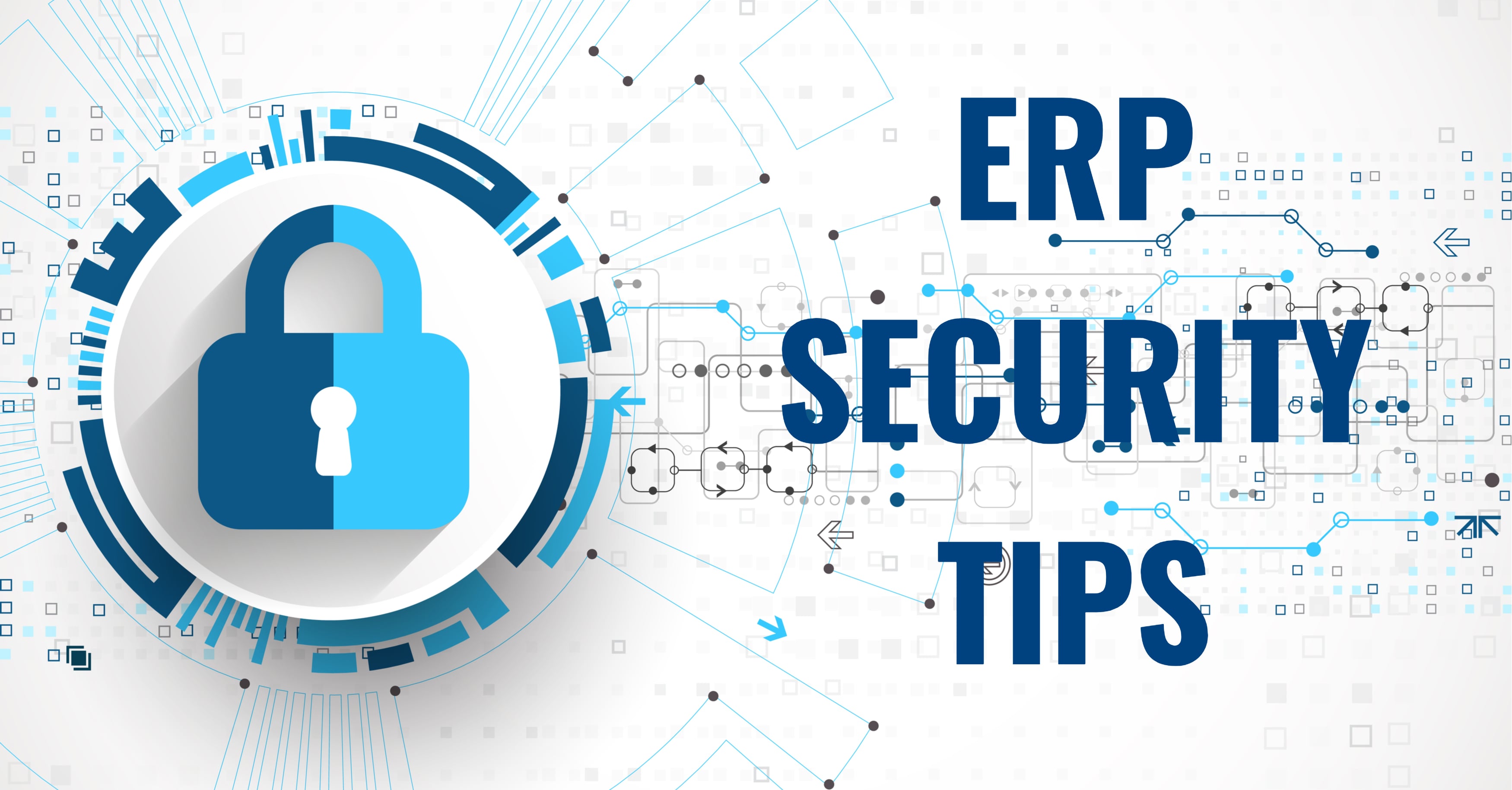ERP Security Measures
Recently, the US Department of Homeland Security issued a warning to businesses about the growing risk of attacks against enterprise resource planning (ERP) systems. This announcement came in the wake of a report that exposed the large volume of breaches in Oracle and SAP systems. Though banks, B2C retailers and government agencies are especially vulnerable to security outbreaks, smaller firms and manufacturers are more frequently becoming victims of breaches.
As alarming as this news is, it still shouldn’t deter companies from seeking out ERP solutions. In our fast-paced marketplace, businesses will fall behind without implementing ERP to automate workflows and serve as a central hub of enterprise data. The truth is that our information has never been 100% safe, and vulnerabilities to cyberattacks often result more from poor protocols than the systems themselves. With each security precaution a business takes, the risk of getting hacked goes down substantially. In this piece, we cover both the measures businesses should take and the robust security features available in Epicor to protect enterprise data.
Regular Updates and Upgrades
The news of growing ERP attacks proves the necessity of regularly updating and upgrading your software. A large number of the systems that were hacked were outdated, unpatched instances. Businesses often delay upgrades and updates as long as possible because they don’t want to delegate their resources to the process. However, most new releases include patches and safety features designed to tackle security challenges. New threats constantly crop up, and your software has to stay on top of the changes. The longer you cling to your legacy system, the more vulnerable it will be to attack.
User Training and SoD
The biggest risk to your data integrity often isn’t the software itself—it’s the people using it. When users aren’t appropriately handing data, your company becomes a prime target for hackers. That’s why you should not only train users during ERP implementations but maintain an ongoing training schedule. This allows users to reacquaint themselves with security practices, so they can report anomalies and avoid introducing issues through opening infected email attachments.
Another method of ensuring your users handle data correctly is to segregate duties. Segregation of Duties (SoD) entails dispersing tasks among multiple people. That way, one person isn’t fully responsible for maintaining sensitive data and executing critical processes. Users can keep tabs on each other, and managers can monitor logins and detect misuse.
Database Maintenance
The ERP database is a goldmine for hackers. Businesses need to put various measures in place to protect their enterprise data. One measure is encryption, which serves as one of the most effective means of securing information by translating data into a code that is meaningless to hackers. In addition to encryption, businesses should perform tests to identify potential vulnerabilities.
But hackers don’t always directly target a database; they also use backdoor methods to reach sensitive company information. IT personnel must remain diligent at all fronts, securing firewalls, updating passwords and implementing two-step verification methods to offer optimal protection. Since upholding security standards is such a heavy responsibility, businesses should enlist the help of expert consultants to guide them through this process and ensure there is no opening for attack.
Epicor ERP for Added Security
Protecting your software sounds like a lot of work, right? Fortunately, with the right vendor, you can obtain security and compliance features out of the box to streamline your software protection measures. Epicor, for example, maintains the security of your data, documentation, transactions and authorizations. Epicor’s Governance, Risk and Compliance (GRC) suite includes key elements of data integrity, such as audit trails that enable users to track every single change in your system. Automated alerts let users know instantly when security problems arise. In addition, sophisticated user authentication and login features ensure that only authorized personnel have access to sensitive data and reports.
Contrary to popular belief, cloud systems are becoming the optimal solutions for upholding security standards. Most IT teams are too busy or small to shoulder all the tasks necessary to protect software, making on-premises ERP unfeasible. With a cloud-hosted instance, vendors take care of updates and maintenance, keeping your software safe and up-to-date. Epicor has long led the way in offering an array of deployment options, including secure cloud hosting. Its recent partnership with Microsoft Azure will enable Epicor to further strengthen its cloud platforms. The Microsoft Azure cloud includes geo redundancy, which copies and stores data in a separate location so that businesses have backup data in case of emergencies. This shows that Epicor is committed to improving its ERP solutions to protect enterprise data against any threat.
Wrap Up
The main takeaway from the uptick in ERP breaches isn’t that enterprise software is dangerous—it’s that critical data is at risk regardless of where it’s stored when proper security protocols aren’t in place. With Epicor, you gain not only a premier ERP solution that boosts your company’s productivity but also a secure platform where your data stays safe.
ERP security is too much to take on alone. At Datix, we’ve helped our manufacturing and distribution clients through an array of enterprise software challenges for over 20 years. Datix is an Epicor Platinum Partner committed to helping clients at any stage of their ERP journey, from implementation to security, maintenance and integrations.
You can’t afford to jeopardize your data integrity. Reach out to Datix today to protect your ERP instance now and into the future!
{{cta(‘770c1544-d87d-4acb-9fc4-7a25e1385094′,’justifycenter’)}}


